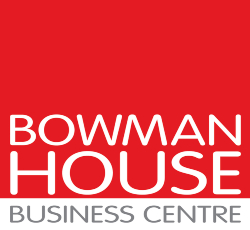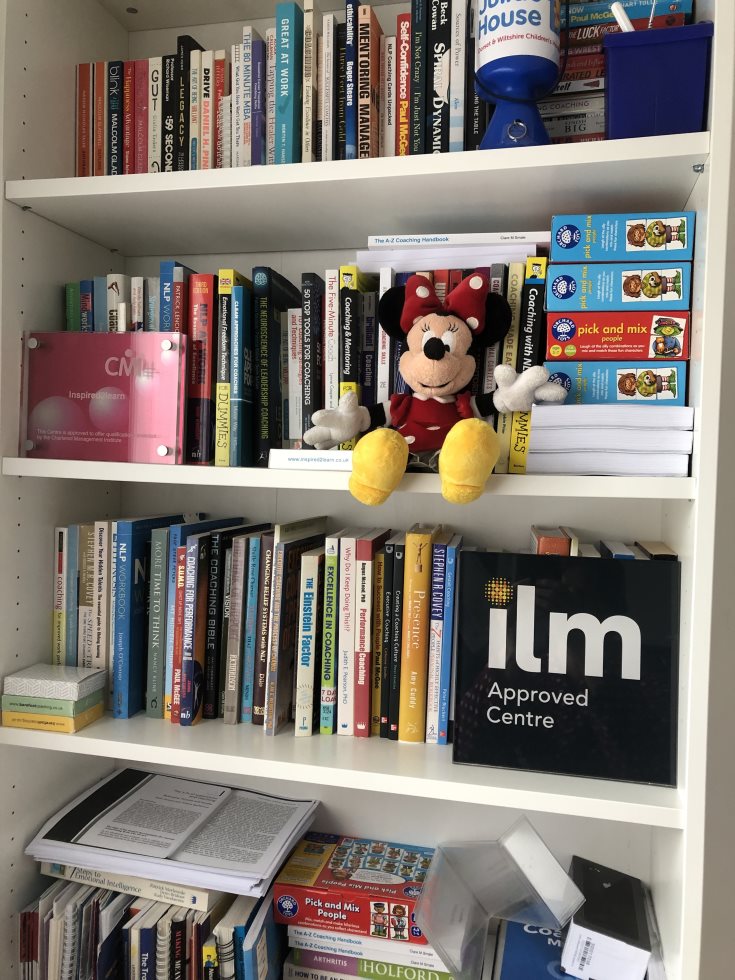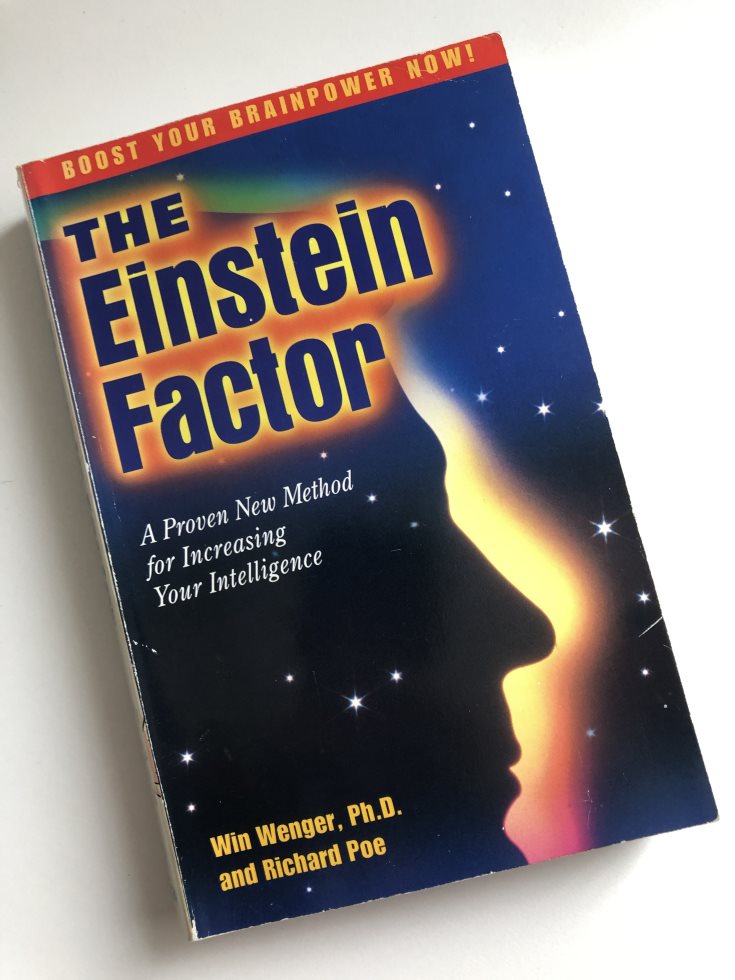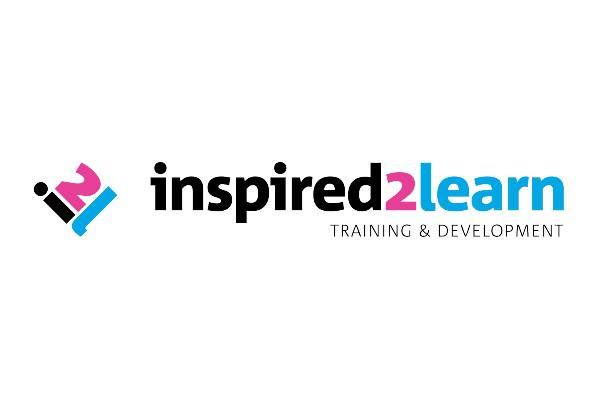International Coaching Week - The Einstein Factor
I’ve been pondering on what might be good use of my time to give something to International Coaching Week 2020 and I’ve decided to review 5 books (one each day) that have influenced my coaching. Interestingly, none of them are coaching books! I hope you enjoy my choices and find value in a quick share of key themes and how I’ve found them useful.
I’ve been spending time reviewing my CPD recently, as part of my application of EMCC Master Practitioner accreditation. I’ve realised that whilst I keep a CPD log and have plenty of evidenced hours, I don’t really spend enough time reflecting on my learning and this includes books that I read. My habit is to read, gather some immediate benefit for my coaching or teaching, put something into practice and then pop the book back on my shelf. Job done, move on. Maybe you’re like me or maybe your style is naturally more reflective. I have been pondering on whether to keep a daily reflective journal and know that many coaches find this hugely beneficial. I have also just read Atomic Habits (James Clear) and have noticed a pattern of thoughts coming together – time to add a new small habit to my working week and see what difference it makes.
My pledge for International Coaching Week is therefore to start journaling for ten minutes each morning and to re-visit one of my favourite books and review it for you. So, first journal entry done, my first choice of book is the Einstein Factor (Wenger & Poe).
Book #1 - The Einstein Factor positions itself as a book that will increase your intelligence and harness the mental powers of Einstein and da Vinci. Putting these bold claims to one side, when I first read the book at least ten years ago, the first chapter immediately grabbed my attention as a coach and I have been using the squelcher principle since as a coach, supervisor and trainer.
What is the squelcher?
If you’ve a background in NLP or neuroscience you will recognise the squelcher principle. The squelcher is the funnel through which our experiences are filtered. In every moments of our day we are exposed to billions of bits of information in our environment. Right now I can hear the washing machine chugging away, the dog is snoring, I am slightly too warm as the sun is on my side of the house and the fan on my laptop is humming quietly. What I notice if I stop and pay attention elsewhere, is that the windows could do with a clean, there is a stiff breeze blowing outside and I’ve forgotten to get the meat out the freezer for tea. In other words, it is impossible to notice everything at once and despite the flood of information from the environment, my brain is constantly filtering (generalising, deleting and distorting) information.
You may have come across George Miller’s research in 1956, which state that on average, we have conscious awareness of seven things. The Einstein factor also puts some numbers on this and states that we can pay attention to 126 bits of information at any one time. Listening takes up 40 bits, and as a coach, that leaves 86 bits for watching non-verbal cues in our clients, note taking and deciding what to do or say next in the coaching conversation. Whichever numbers you like best, the principle is the same – we are all working with limited information and what is true for us, might not be true for others. We all delete, generalise and distort information differently and therefore create a map of our experiences that is different to the map of another person.
Here are four ways in which this principle is powerful for me as a coach:
I feel it is my responsibility to work in service of my client and to be the best coach I can be. This means tracking as much information as I can during coaching to help me to respond in the most appropriate way. I want to be able to respond to non-verbal cues from my client and subtleties of their language patterns, plus my own internal responses and thoughts. If I am going to be effective I need to be present and allow my thoughts to flow. If I stop and start thinking about my latest thought (such as planning what question I am going to ask next), then I will start to miss client information and reduce the flexibility of my responses
The second impact of the squelcher is that paying attention to the information we receive actually blocks our mental capacity. So if I notice something when I coach and then start analysing it in my mind (and planning what to do next), I will block access to inner wisdom, intuition, past learnings or other inner feelings. Einstein attributed his success to working with images and feelings rather than thoughts and cognition, delaying translating these into theories and words. There are other books that coaches have often read in support of this principle, such as The Power of Now or The Inside Out Revolution. Thinking about our thinking can get in the way of deeper insights and access to information stored in the unconscious. We have a thought and we think about the thought. This then blocks other thoughts or feelings from appearing and limits our results. The opposite of this is being in flow.
The next thought that then appears for me, is the link to neuroscience. Parasympathetic nervous arousal (PSNA) is the neurological state of being in flow. This is characterised by alpha and theta brain wave activity and the state of relaxation, mindfulness and daydreaming. The opposite of this is sympathetic nervous arousal (SNA), characterised by beta and gamma waves which are associated with processing of complex information, decision-making, reading, writing and socialising. Our normal working life is firmly placed in the latter, whereas for coaching, being in flow and therefore having access to a wider range of peripheral information is hugely important for coaching mastery. In reality, I find that I move between all these states when I am coaching. However the Einstein Factor provide a thought provoking reminder for me to check that I am getting the balance right.
Finally, coaching for me is all about supporting a client to open up their map of the world, rather than working with what they already know, feel and understand. To generate new insights, learnings and options, I believe my role as coach is to create new thinking and the beginnings of new neural pathways. Think as you’ve always thought and get what you’ve always got. What are the best coaching interventions to support clients to think, see, feel and hear new things and develop their flexibility of response beyond what they have always done and results of the past. Build upon what is effective and change what isn’t.
As I write this, my mind is now wondering about day dreaming and the benefits of this for clients. The Einstein Factor quickly moves onto image streaming as a principle for accessing unconscious insights learning and creativity, based upon Einstein’s description of ‘combinatory play’. This is where he used visual images, emotional feelings, memory pictures, sensory experiences and muscular sensations to inform thoughts, which he would delay translating into words or mathematics. Coaching is a time and space where we can enable our clients to be in flow and notice new things and the book goes on to explore some practical techniques for this.
Fascinating stuff and I could write about this for a while longer. However for the sake of brevity, here are the questions that are in my mind right now (in no particular order):
- How can I better practice being in a flow state and how might journaling help me to do this to widen my professional thinking?
- How weird is flow state for most of my coaching clients and how can I support them to access this state? I mostly work with busy senior leaders who are full on in their working day with meetings, decision making, fire-fighting (literally in some cases) whilst managing politics, relationships, team dynamics and stakeholder demands. What is the quality of the relationship that is needed in order for them to work alongside me in a different type of space and time?
- How can I model Einstein Factor principles in my coaching approach and business life?
- What more can I learn about current neuroscience to support principles written in this book thirty years ago?
Find out more about Inspired2Learn HERE!






















